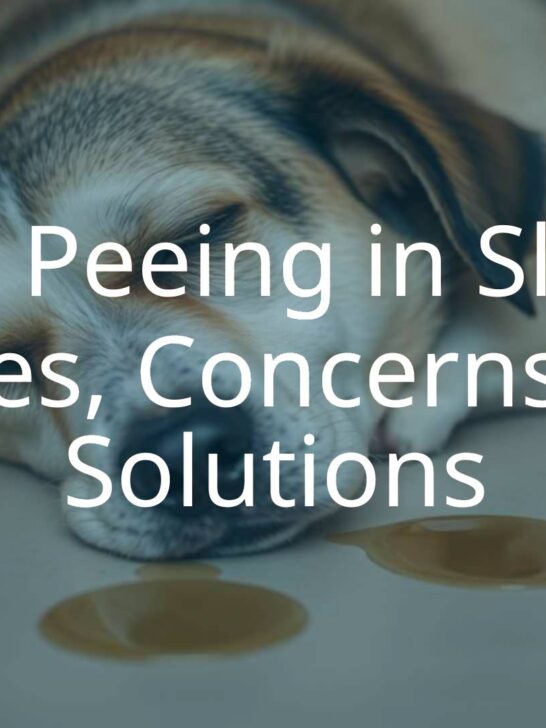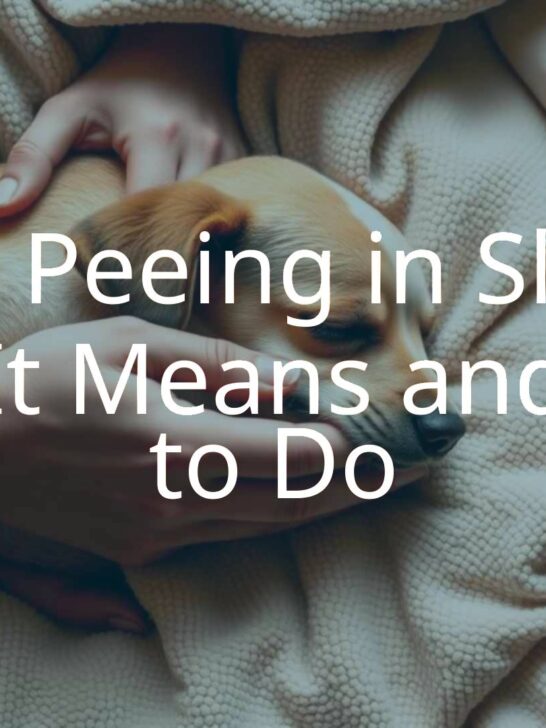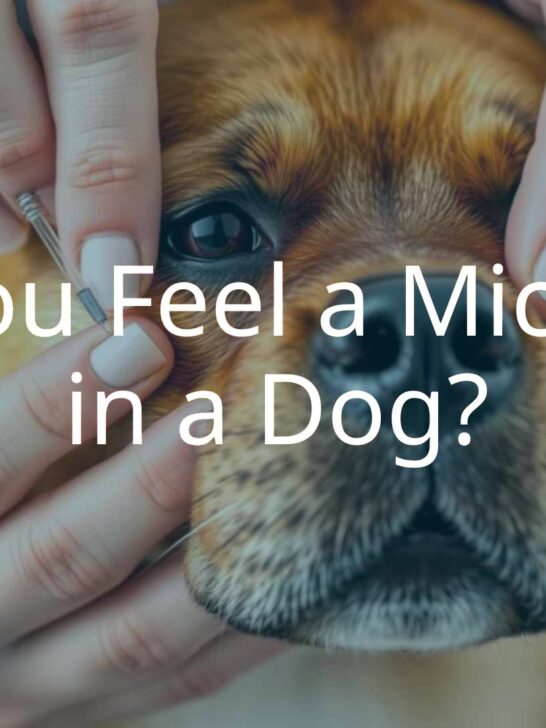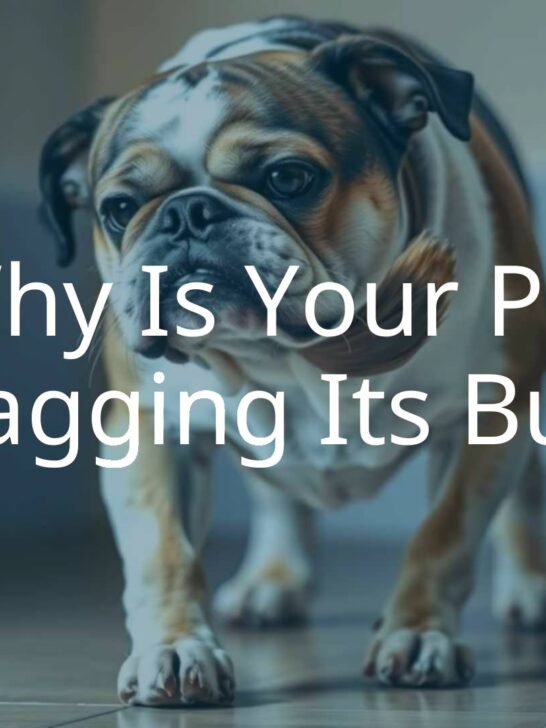A Guide On The Risk Of Catching Worms From Your Dog Sleeping In Your Bed
When you have a pet, it can be tempting to let them into your space, and allow them to sleep in your bed for a cuddle when they get lonely.
However, if you’re new to being a dog parent you might be wondering: Can I get worms from my dog sleeping in my bed?
In this article, I will cover some key information about worms, including whether you can get worms from your dog sleeping in your bed.
So, let’s get started.
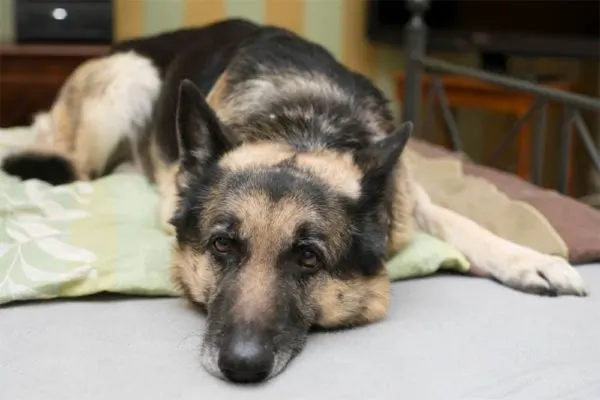
Is It Good To Sleep With Your Dog In Bed?
Sleeping with your dog can feel like a simple solution when your pet gets separation anxiety when left alone for the night. However, is it good to sleep with your dog in bed?
There are both pros and cons to letting your dog sleep in your bed.
For instance, allowing your dog to sleep in your bed can provide comfort and security for both you and your furry friend, especially if they cry at night when they’re left alone.
In addition to this, it can also boost your mental health and positively impact your overall wellbeing.
That being said, sleeping with your dog in your bed isn’t without its downfalls. Namely, parasites, bacteria, and fungi can spread from your dog to you.
These germs can be spread through:
- Licking the face or an open wound
- Scratches
- Touching feces
- Bites
If your dog has separation anxiety, it’s a problem that needs to be worked through.
Sleeping with them at night could exacerbate this issue when it comes to you leaving your pet during the day when you’re out at work.
Sleeping with your dog can also aggravate allergies.
Aside from the fur and dander that dogs malt, sleeping with them could open you up to a variety of other conditions, including worms which I go into further detail below.
Can You Get Worms From Your Dog Sleeping In Your Bed?
Yes, in short, you can get intestinal worms such as roundworms, tapeworms, or hookworms from your dog sleeping on your bed.
This comes down to the fact that intestinal worms are probably the easiest condition that can be passed from your dog to you. This happens through fecal matter.
There are two types of roundworm that can affect your dogs, toxocara canis and toxascaris leonin.
Roundworm larvae will initially infect a dog’s intestinal tract, but can burrow their way into other bodily tissues and organs.
Tapeworms are a parasite that lives in their host’s intestines and can be spotted in your dog’s feces or around their backend.
Occasionally dogs will drag their bottoms on the ground, a behavior known as scooting, which is another indication that your dog is infected and needs a veterinary appointment.
Hookworms are short, blood-sucking parasites with teeth that attach themselves to the intestinal wall. It’s possible to contract hookworms via the feces of an infected dog.
With no outward warning signs, someone might not realize that their pet is potentially infectious.
While you would hope that you would spot your dog’s soiled fur, bacteria that are invisible to the naked eye can still lurk if your pet has recently been to the bathroom.
While in the context of the bedroom, it takes a relatively unusual event to occur for you to contract worms, such as you ingesting dog feces, but it’s still a risk you should be aware of.
So, is it hygienic to sleep with your dog?
To put it simply, sleeping with your pet is never going to be as hygienic as sleeping without them in your bed.
You should always be aware that while it might be nice to cuddle your dog, letting your pooch sleep in your bed is a risk that you should be cautious about.

Circumstances When You Should Avoid Letting Your Dog Sleep In Your Bed
Regardless of whether you choose to let your dog sleep in your bed occasionally or not, there are a few occasions when it’s best avoided altogether.
You won’t want to let your dog sleep in your bed if:
- They have a tendency to bite or scratch. This could quickly lead to an infection that might require medical intervention.
- They are not toilet trained or have diarrhea – Worms are spread through fecal matter, and this will increase the risk of you catching them if your dog’s feces is infected. Salmonella can also be found in their feces.
- They have or are showing signs of having mites, fleas, ticks, or worms
- They tend to drool a lot – Salmonella is often present in their saliva.
- They are a new pet and haven’t had a checkup or vaccinations
In addition to this, you should avoid letting them sleep in your bed if:
- You have an open wound that they could infect
- You have severe allergies
- You have a compromised immune system
- You have a sleep disorder or are easily woken
While dogs are a wonderful addition to the family, it is important to use common sense when your own health could be at risk.
When it comes to these circumstances, it’s always safer to put your health above anything else and to make sure that your dog sleeps elsewhere.
Always make sure that you are following hygiene protocols and are making sure that you aren’t compromising your health to let your pet sleep with you.

In Summary
Sleeping with your dog is a personal choice and can help you and them to relax. However, allowing them into your bed is never going to be as hygienic as sleeping without them, and therefore isn’t recommended.
People should avoid sharing their bed with a pet and kissing their dog on a regular basis.
You should also never allow your dog to lick your face, and always wash your hands when you’ve been in contact with their feces.














